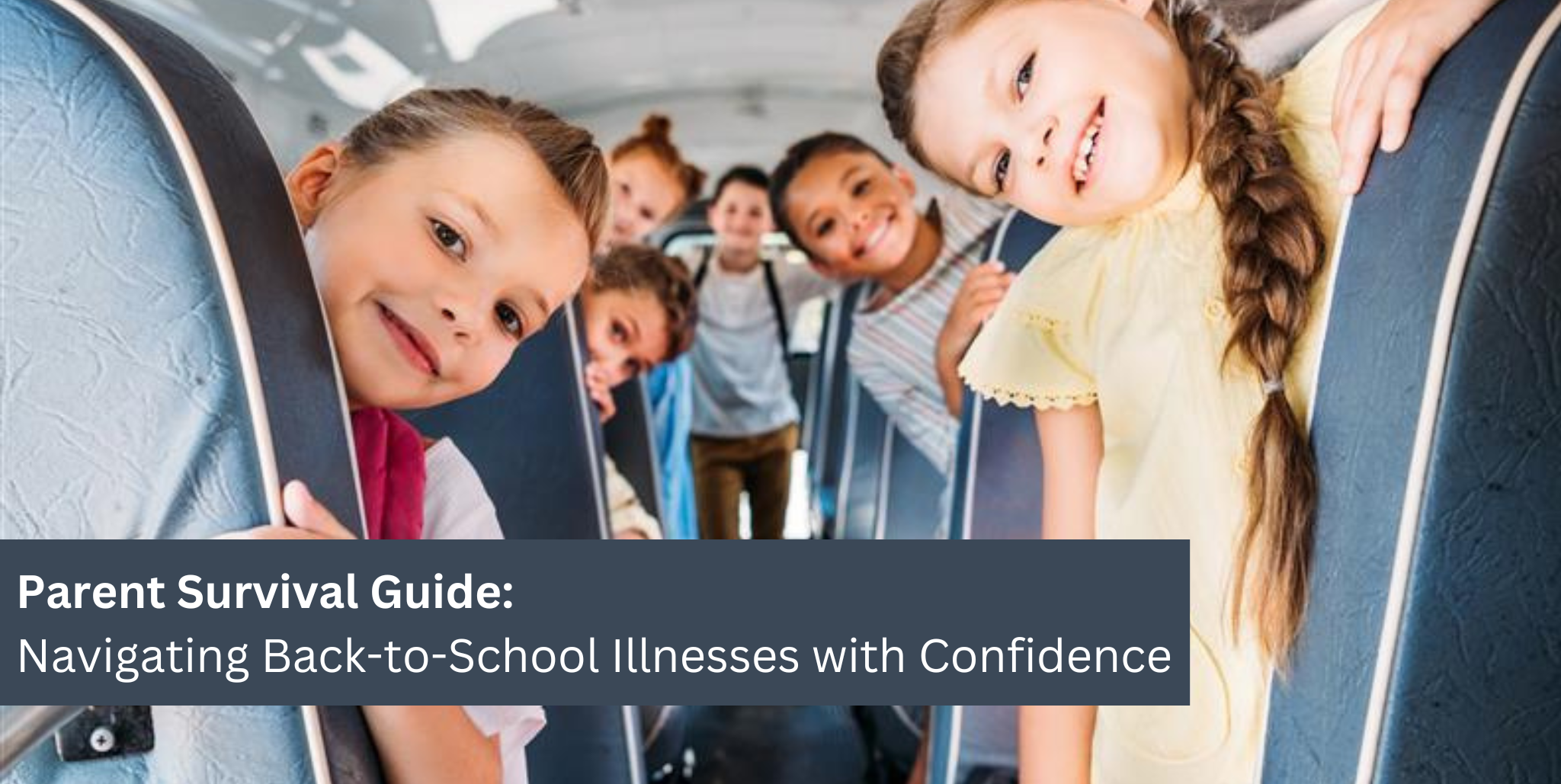
Back-to-School Season = Germ Season
As kids head back to classrooms, sports fields, and cafeterias, it’s not just backpacks and homework that come with the season—so do colds, strep throat, pink eye, and other common contagious illnesses. With more face-to-face interaction, shared supplies, and group activities, germs spread fast this time of year.
But with a little preparation—and help from your local Hometown Urgent Care—you can handle the school year with confidence.

Common Illnesses to Watch For
Some of the most common back-to-school illnesses include:
- Colds & flu: Runny nose, congestion, fatigue
- Strep throat: Sore throat, fever, swollen glands
- Conjunctivitis (pink eye): Red, itchy eyes, often contagious
- Stomach bugs: Vomiting, diarrhea, dehydration risks
- Hand, foot, and mouth disease: Rash, fever, and sore mouth in younger kids
Recognizing these illnesses early helps you respond quickly and prevent them from spreading to classmates or family members.

When to Keep Your Child Home
Knowing when to keep your child out of school helps prevent wider outbreaks and allows time for healing. As a rule of thumb, keep your child home if they have:
- A fever over 100.4°F: Children should be fever-free for at least 24 hours without medication before returning to school.
• Vomiting or diarrhea within the last 24 hours: This helps prevent the spread of stomach viruses.
• Uncontrollable coughing or difficulty breathing: This can disrupt learning and signal a more serious illness like RSV, bronchitis, or the flu.
• Eye discharge, especially with redness or swelling: These may be signs of pink eye or another contagious infection.
• Any illness that interferes with their ability to focus or participate: If your child is too tired, uncomfortable, or unwell to learn, it’s best to let them rest at home.
When in doubt, call your child’s pediatrician or our urgent care team for guidance.

When to Visit Urgent Care
If symptoms escalate or don’t improve, Hometown is here to help with walk-in care, extended evening hours, and weekend availability. Visit us for:
- Strep testing: A rapid test and, if needed, a confirmatory culture to guide treatment.
• Ear infections: Ear pain, fever, and fussiness can indicate infection needing antibiotics.
• Persistent cough: If cough lasts longer than 10 days, worsens, or is accompanied by wheezing or difficulty breathing.
• Rashes or allergic reactions: New rashes, swelling, or hives that appear suddenly.
• Pink eye evaluation: To determine if it’s viral or bacterial and whether antibiotic drops are needed.
• Fevers that won’t break: Especially important if paired with lethargy or dehydration.
We offer fast, family-friendly care—so you don’t have to wait days for an appointment or spend hours in the ER.
Bonus Back-to-School Must: Sports Physicals
Before fall sports kick off, most schools require a Pre-Participation Physical Exam (PPE) to ensure your child is healthy and ready to play. Our Sports Physical Program makes it easy:
- No appointment needed
- Available at all Hometown Urgent Care locations
- Quick, affordable, and completed by licensed providers
- Ideal for athletes in school sports, recreational leagues, and fitness programs
Tip: Knock out your child’s physical before the back-to-school rush to avoid long waits and scheduling stress.
Prevention Tips for a Healthier School Year
- Teach good handwashing habits: Scrub with soap and water for at least 20 seconds.
- Pack hand sanitizer in backpacks: Especially important before lunch and after recess.
- Encourage kids to cover coughs and sneezes: Use elbows or tissues instead of hands.
- Make sure your child gets enough sleep, fluids, and nutritious meals: A healthy immune system fights infections more effectively.
- Keep vaccinations up to date, including flu and COVID boosters: Staying current reduces the risk of severe illness.
By practicing prevention, you help protect your child—and everyone around them.
